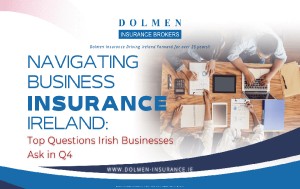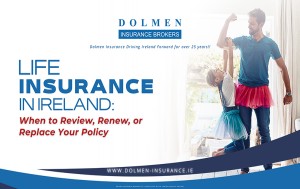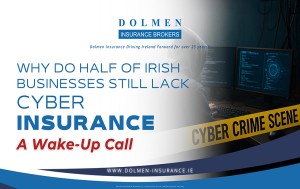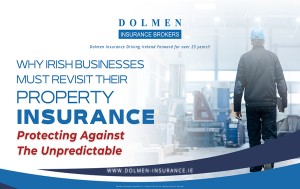Ensuring compliance with legal requirements to safeguarding assets and employees, motor fleet
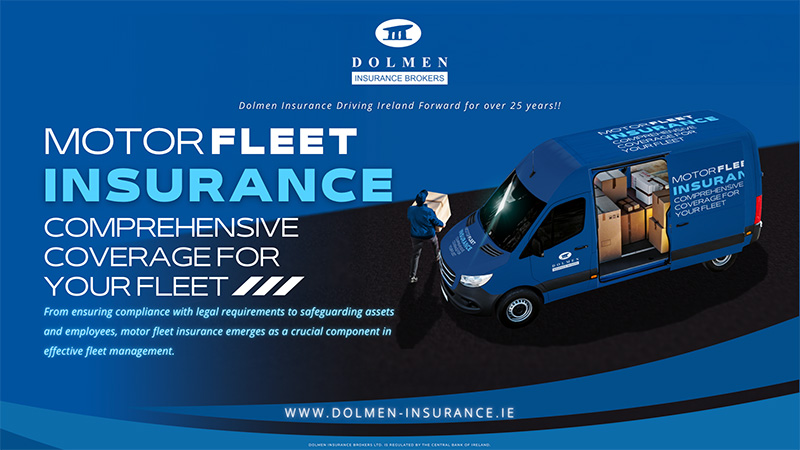
Managing a business in Ireland that relies on multiple vehicles presents several ongoing challenges. These challenges range from ensuring all vehicles are legally roadworthy to protecting your workforce and assets from unexpected financial setbacks. This is where motor fleet insurance becomes an essential tool for businesses of all sizes. Whether your company operates a few delivery vans or an extensive fleet of vehicles across the country, a well-structured motor fleet insurance policy can offer vital financial protection and operational simplicity.
As the Irish economy continues to grow, particularly in sectors such as logistics, construction, and services, the need for efficient vehicle management has never been greater. According to the Society of the Irish Motor Industry (SIMI), there were over 2.3 million vehicles in the national fleet by the end of 2023. Of these, a significant number were registered to companies or commercial operations. This growing number indicates the crucial role that fleet vehicles play in the Irish economy, making it imperative for businesses to invest in robust insurance policies.
What is Motor Fleet Insurance?
Motor fleet insurance is a type of commercial insurance designed to provide coverage for multiple vehicles under one policy. Instead of insuring each vehicle separately, businesses can protect all of them through a single contract, which not only simplifies administration but can also reduce overall costs. In Ireland, fleet insurance typically becomes available when a company operates two or more vehicles, whether those are company cars, commercial vans, or larger trucks. This type of policy is especially valuable for SMEs and larger corporations that manage vehicle-dependent operations daily.
Moreover, motor fleet insurance is adaptable. It allows companies to include a variety of vehicle types and uses within the same policy. For example, a policy may cover vehicles used for sales, transportation, deliveries, and even plant or service work. This flexibility is particularly useful for Irish businesses, where economic diversity means that fleet composition varies widely between sectors. Additionally, these policies can often be customized with extras such as breakdown assistance, windscreen repair, and legal expenses, giving business owners peace of mind across multiple operational areas.
Another significant advantage is the ability to insure vehicles on an “any driver” basis, which allows qualified employees to use company vehicles without the need to be individually named on the policy. This arrangement is ideal for companies with rotating drivers or high staff turnover. It offers not only convenience but also ensures that your business remains agile and responsive to changing circumstances.
Types of Motor Fleet Insurance Coverage
Selecting the right level of coverage is one of the most critical decisions a business will make when setting up fleet insurance. In Ireland, three main types of motor fleet insurance are available, each providing varying levels of protection. Understanding the difference between these options is key to choosing the most suitable policy for your business needs and budget.
The most basic type of cover is Third-Party Only, which meets the legal minimum requirements for operating a vehicle on Irish roads. This policy covers damage or injury to third parties, including other vehicles, property, or individuals. However, it does not offer any protection for your own fleet vehicles. While this may be sufficient for older vehicles with low replacement value, it leaves a business vulnerable to significant out-of-pocket costs in the event of damage or theft.
The second level, known as Third-Party, Fire and Theft, offers a middle ground. In addition to the basic third-party coverage, it includes protection for your vehicles in case of fire damage or theft. This level of cover is often selected by businesses that want a greater degree of security without the higher premiums associated with comprehensive policies. It is particularly useful for fleets that include mid-range vehicles or assets stored in areas with higher crime risk.
Finally, the most inclusive option is Comprehensive Cover, which offers full protection for both third-party liabilities and your own fleet assets. Comprehensive policies typically include coverage for damage to your vehicles regardless of fault, and often come with extras such as breakdown cover, legal expenses, and windscreen repair. For businesses relying heavily on their fleet to deliver products or services, comprehensive cover represents the best value over time. It minimises disruption and financial loss when accidents or incidents occur, allowing operations to resume quickly and smoothly.
Benefits of Motor Fleet Insurance
Motor fleet insurance delivers an array of operational and financial benefits that make it a strategic investment for Irish businesses. First and foremost, it streamlines the insurance management process. By consolidating all vehicle insurance into a single policy, businesses reduce administrative complexity. This means less time spent monitoring individual renewal dates or juggling separate policy documents. Instead, your company can manage everything through one centralised system, freeing up valuable time for other important tasks.
In addition, fleet insurance often results in significant cost savings. Insurers typically offer lower per-vehicle premiums for fleets, especially when risk management practices are in place. Companies with good claims histories and trained drivers may also qualify for discounts or bonuses, further lowering insurance costs. These savings can be reinvested in other areas of the business, such as vehicle upgrades or staff training, enhancing overall efficiency and safety.
Another key benefit is the flexibility of driver cover. Many fleet policies offer “any driver” or “any qualified driver over a certain age” options. This is ideal for companies where multiple employees may use different vehicles depending on schedules or job requirements. Rather than updating the insurer each time a new driver is added, companies can operate with greater flexibility and responsiveness.
Furthermore, motor fleet insurance can also be a key part of a business’s risk management strategy. Comprehensive policies provide a safety net against major financial losses due to accidents, theft, vandalism, or damage. They also typically include liability coverage, which protects the company in the event a third party makes a claim. By protecting both assets and personnel, businesses ensure that unexpected events do not jeopardize their operations or reputation.
Importantly, having the right insurance coverage ensures legal compliance. In Ireland, it is illegal to operate any vehicle without the appropriate insurance in place. Fleet insurance ensures all vehicles are covered consistently, helping to avoid fines, legal complications, or vehicle seizure. With the Motor Insurance Database (MID) becoming more integrated in Ireland, compliance is not just advisable—it is essential.
How to Choose the Right Motor Fleet Insurance
Choosing the right motor fleet insurance policy requires a well-informed approach. It’s not just about selecting the lowest premium. Businesses must evaluate their unique operational needs, vehicle types, and risk exposures to determine the most suitable cover. A good starting point is to assess the composition of your fleet. Consider factors such as the total number of vehicles, their make and model, average mileage, and how frequently they are replaced or serviced. This will give you a clearer picture of what kind of policy structure will work best.
Next, determine the level of coverage your business requires. For companies that operate in low-risk environments with older vehicles, a Third-Party or Third-Party, Fire and Theft policy may be adequate. However, businesses with newer vehicles, higher value assets, or complex logistical operations will benefit more from a comprehensive policy. It’s important to think long-term and weigh the cost of higher premiums against the potential cost of vehicle loss or damage.
After defining your coverage needs, it’s essential to compare insurance providers. While several insurers in Ireland offer motor fleet insurance, not all policies are created equal. Some may include additional features such as replacement vehicles, while others may charge extra for windscreen coverage or roadside assistance. Consult with insurance brokers like Dolmen Insurance, who can access a wide range of policy options and help you tailor a package that aligns with your budget and risk profile.
Also, don’t overlook the importance of reviewing policy terms and conditions. Pay attention to exclusions, claims procedures, and any limitations on vehicle types or driver age. Policies that appear attractive on the surface may come with hidden restrictions that could complicate a claim. Being thorough at this stage will prevent future headaches and ensure that your business is fully protected.
Finally, continually monitor and update your policy. As your business evolves, so too will your fleet. Adding new vehicles, selling older ones, or expanding into new regions may necessitate changes to your insurance cover. Regularly reviewing your policy with your broker ensures that your insurance remains fit for purpose and continues to offer value for money.
The Irish Context: Statistics and Trends
Ireland’s motor insurance landscape is evolving rapidly, and businesses need to stay informed about key trends to make sound decisions. According to SIMI, the average vehicle age on Irish roads now exceeds 9.6 years, with over 900,000 cars aged over 9 years. This aging fleet increases the risk of mechanical failures and insurance claims, making adequate fleet coverage more important than ever. In addition, the growing push for vehicle electrification will have a direct impact on insurance strategies going forward.
Recent changes in enforcement have also influenced the motor insurance market. The introduction of the Irish Motor Insurance Database (IMID) in 2024 has led to a sharp drop in uninsured vehicles—from 8.3% to 4.2% in under a year. This database enables An Garda Síochána to verify insurance status in real time, helping to improve compliance and reduce fraud. For businesses, this underscores the importance of maintaining valid insurance across all fleet vehicles to avoid fines and enforcement actions.
Furthermore, Ireland’s Climate Action Plan aims to have nearly one million electric vehicles (EVs) on the road by 2030. As more companies adopt EVs into their fleets, insurance providers are adjusting to cover new risks and vehicle values. Businesses considering this shift should ensure their policies include appropriate EV coverage, charging infrastructure protection, and breakdown assistance for electric models.
What next?
Motor fleet insurance is not merely a legal requirement, t’s a vital tool for Irish businesses striving to protect assets, employees, and operational continuity. With increasing vehicle numbers, evolving technologies, and tighter compliance regulations, the need for efficient and reliable insurance coverage has never been greater. By understanding the different types of cover, the benefits they offer, and how to select the right provider, businesses can secure the protection they need to thrive.
For tailored fleet insurance solutions, Dolmen Insurance offers deep market insight and personalized service. With years of experience serving Irish businesses, Dolmen can help identify the most cost-effective and comprehensive policies for your unique needs. Partnering with a trusted broker ensures that your fleet, your finances, and your future remain secure.
If you are looking for affordable, comprehensive fleet cover, consider Dolmen Insurance. Get in touch today to discuss your Motor Fleet Insurance options and explore the benefits of bundling your insurance cover. From Mortgage Protectionto Life Insurance, home insurance or car insurance we have you covered.
Contact Us Today
*While all information in this blog post is correct at the time of writing, changes can affect this. The information provided may not reflect individual circumstances and policies, and it is recommended that you speak with a qualified insurance broker for personalised advice.
